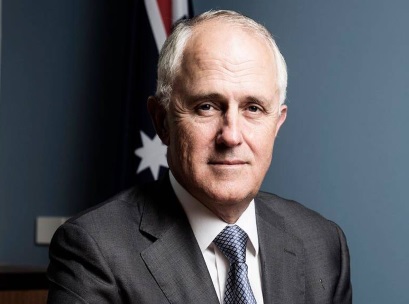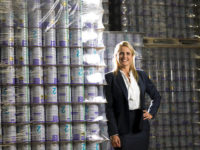 Prime minister Malcolm Turnbull has slapped down renewed calls for sugary drinks to be slugged with a 20 per cent tax this morning after a coalition of health and community groups released a national plan designed to tackle Australia’s obesity problem.
Prime minister Malcolm Turnbull has slapped down renewed calls for sugary drinks to be slugged with a 20 per cent tax this morning after a coalition of health and community groups released a national plan designed to tackle Australia’s obesity problem.
34 public health, medical academic and community groups have banded together to back an eight-point plan that’s calling on the government to establish a national obesity task force, introduce restrictions on TV junk food ads and mandate health star ratings on all food packaging by mid-2019.
The changes would have an immediate and widespread impact on the FMCG industry, but Turnbull isn’t backing the move, telling the Nine Network on Tuesday morning that a tax isn’t the solution.
“I think we have enough taxes and there are enough imposts on us all when we go to the supermarket and we go shopping,” he told the Nine Network on Tuesday. “The other thing is too where do you draw the line? There is a lot of sugar in a bottle of orange juice, are you going to put a tax on that?”
The groups calling for a sugar tax include the Obesity Policy Coalition, Cancer Council, the Heart Foundation and several universities.
They estimate that 63 per cent of Australian adults and 27 per cent of children are either overweight or obese, with the annual cost to the health budget coming in at around $8.6 billion. Obesity Policy Coalition executive manager Jane Martin said if the government doesn’t act to address the problem, the costs will escalate.
“The policies we have set out to tackle obesity therefore aim to not only reduce morbidity and mortality but also improve wellbeing, bring vital benefits to the economy and set Australians up for a healthier future,” she said.
Turnbull said he believed the best approach was focusing on making people aware of what they are eating – and the consequences.
“Labelling is very important, health messages through the media, … but also exercise. Get up and walk,” he said. Liberal Democrats Senator David Leyonhjelm has slammed the coalition, calling the plan “nanny-state policy”.
“This nanny-state policy is wheeled out with nauseating monotony and is just another excuse for a tax, dressed up as a health issue,” Senator Leyonhjelm said. “Nanny rummages through our fridges and shopping trolleys and, with wagging finger, tells us we need to give more money to the government for our own good.”
While Australia’s growing obesity problem is a serious issue, Senator Leyonhjelm said attempts elsewhere in the world to introduce a sugar tax had proved ineffective.
“The simple fact is there is no accepted evidence that sugar taxes cut long-term soft drink consumption or reduce body mass index, or have any marked effect on rates of obesity, diabetes and heart disease,” he said.
The Obesity Policy Coalition is also proposing an extension of the ban on fast food advertising from 8.30pm to 9.30pm.
In response to the calls the Australian Food and Grocery Council (AFGC), alongside the Australian Association of Convenience stores (AACS), Australian Beverages and several other lobby groups released a joint-statement condemning the plan.
“We believe it is appropriate for calls to be made for Australians to modify and improve their dietary intake. However, we believe there is no single cause or quick fix solution. As such we welcome a conversation on establishing a broad and holistic approach to tackling obesity,” the statement said.
“We broadly support the principles and spirit of today’s announcement, and note the significant achievements which have been made through collaboration with the public health sector under the Federal Government’s Healthy Food Partnership program and the rapid uptake of the voluntary Health Star Rating food labelling scheme which are examples of practical action to encourage healthier choices.”















